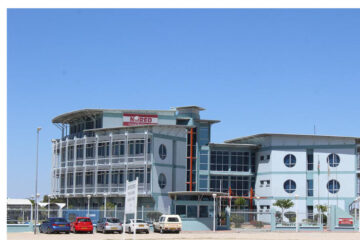Martin Endjala
The European Union (EU) has recently disbursed N$6.5 million for the launch of a new EU-funded project to empower San communities to have access to legal capacity building and human rights among others.
The European Union in collaboration with the Legal Assistance Centre and other relevant stakeholders will run the project for a period of three years.
EU Ambassador to Namibia, Ana-Beatriz Martins, explained that the San people are facing profound challenges, ranging from land dispossession, discrimination, socio-economic marginalisation, loss of cultural heritage, limited access to education, health disparities and environmental pressures.
“The main aim of the project is to improve the living conditions of the San by fostering an environment that seeks to empower them to access their rights through their own volition. The project will also improve access to basic constitutional and international human rights for San communities, she said.
Martins further stressed that the project will contribute to improved equality and respect as well as engagement of San communities in spheres of public and private life, and ultimately towards more equality in Namibia.
Meanwhile, Corinna van Wyk, Legal Assistance Centre Project Coordinator and implementing partner for the project, said they seek to empower the San communities with the necessary tools to navigate the complex legal landscape to their advantage.
“Central to our approach is the training of paralegals, and individuals within the San communities who will become beacons of hope and agents of change,” she added.
The project is said to deliver activities aimed at increasing awareness and strengthening advocacy capabilities, with specific emphasis on combatting all forms of discrimination on any ground.
Another pivotal dimension involves amplifying opportunities for engagement, particularly in decision-making processes, for San people and vulnerable communities.
Moreover, an integral component of the collective effort involves bolstering regulatory capacities and implementing measures that address social services, emphasising the provision of quality and affordable health services, as well as education.




